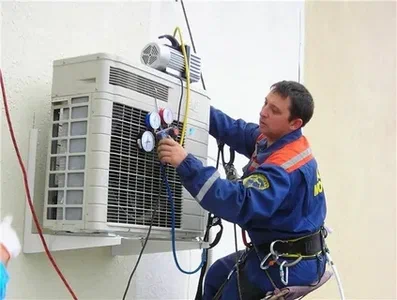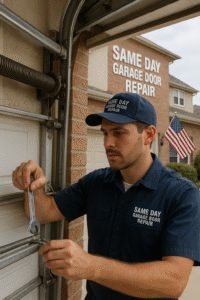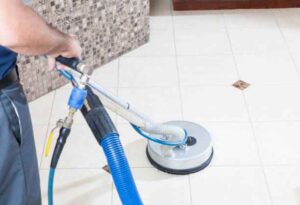HACCP Certification: Your Key to Winning Global Food Markets
Picture this: You’re an exporter pitching your premium spices to a major European retailer. The deal’s looking sweet until they ask, “Are you HACCP certified?” You pause—you’re not. The retailer pulls back, citing food safety concerns, and your contract slips away. Or maybe a shipment gets rejected at the US border over contamination risks, costing you lakhs in losses. That’s a gut punch, isn’t it? If you’re an exporter or international supplier, these moments can derail your global dreams. So, here’s the big question: Are you ready to secure your place in the world’s food supply chain?
HACCP certification is your answer. It’s not just a fancy stamp for your products; it’s a globally recognized system that proves your food is safe from farm to fork, opening doors to markets like the US, EU, and Middle East. For exporters and suppliers, HACCP is a must to compete and thrive. Let’s unpack what it is, why you need it, and how to get it—with a conversational vibe, practical tips, and a peek at what’s shaping food exports in June 2025.
What’s HACCP Certification, Anyway?
If HACCP sounds like a mouthful, let’s break it down. HACCP (Hazard Analysis and Critical Control Points) is a food safety system that identifies and controls risks—like contamination or spoilage—throughout your production process. Think of it as a safety blueprint for your food, ensuring every step is secure before it hits the market.
Certification means a third-party body, like BSI or SGS, audits your processes to confirm they meet HACCP standards. It’s a rigorous check of your supply chain, from sourcing ingredients to packaging, proving your food’s safe for global consumers. For exporters and suppliers, HACCP is your ticket to trust, showing buyers your products meet strict international standards.
Why Exporters and Suppliers Need HACCP Certification
Let’s keep it real: global food markets are a high-stakes game. With retailers like Walmart and regulators like the FDA cracking down on safety, there’s no room for slip-ups. Without HACCP certification, you’re risking rejections, recalls, or worse—losing your foothold in lucrative markets like the EU’s €500 billion food sector.
Here’s the deal. A safety issue, like bacterial contamination, can trigger costly recalls or border rejections, hitting your profits hard. Consumer distrust? A single food scare can tank your brand’s reputation, especially when social media amplifies every misstep. And regulatory fines? Non-compliance with FSSAI, FDA, or EU rules can cost millions. HACCP certification dodges these bullets, ensuring your products sail through inspections.
Now, let’s get personal. Your business is your hustle—years of building supply chains, chasing deals, dreaming big. A rejected shipment or safety scandal doesn’t just hurt your wallet; it stings your pride. HACCP certification fuels your ambition, letting you pitch with confidence and grow without fear.
And here’s a quick digression: June 2025 is a pivotal time for food exports. With sustainability and traceability—think blockchain or eco-labels—driving demand, HACCP aligns with global trends. Buyers want safe, transparent food, and certification bodies are ready to help you meet these expectations, keeping your exports competitive.
Key HACCP Principles
HACCP certification rests on seven core principles, like a kitchen checklist that keeps your food safe. Here’s what they cover:
- Hazard Analysis: Identify risks, like bacteria or allergens, that could harm consumers.
- Critical Control Points (CCPs): Pinpoint steps—like cooking or cooling—where risks can be controlled.
- Critical Limits: Set safety thresholds, like minimum cooking temperatures, for each CCP.
- Monitoring: Regularly check CCPs to ensure they stay within limits.
- Corrective Actions: Fix issues, like adjusting equipment, when monitoring flags a problem.
- Verification: Confirm your HACCP plan works through tests or audits.
- Record-Keeping: Document everything—temperatures, inspections—to prove compliance.
These principles are your roadmap to safety, tailored to your products, whether spices, seafood, or snacks. Certification bodies like Intertek or TUV SUD help you apply them, making your processes bulletproof.
How to Get HACCP Certified
Alright, let’s get into the nitty-gritty—how do you get HACCP certified? It’s like building a trade bridge: you plan, construct, and test it before crossing. Here’s the process:
- Step 1: Assessment. Contact a certification body like BSI, SGS, or DNV. They review your current processes to spot gaps.
- Step 2: Develop a HACCP Plan. Create a plan based on the seven principles, covering your supply chain from raw materials to export.
- Step 3: Implementation. Train your team and tweak processes—like upgrading sanitation or monitoring systems—to meet HACCP standards.
- Step 4: Audit. Auditors visit your facilities—say, your plant in Gujarat or Miami—to check compliance. They inspect records, equipment, and workflows.
- Step 5: Certification. Pass the audit, and you get your HACCP certificate. Ongoing audits (usually annual) keep you compliant.
Global bodies like SGS or Bureau Veritas have teams worldwide, making it easier for exporters to coordinate across borders. Online tools, like BSI’s compliance portals, streamline documentation, saving you time.
Benefits That Boost Your Exports
Why bother with HACCP certification? Because it’s a rocket booster for your business. First, it unlocks market access. HACCP is a must for markets like the US, EU, or Canada, where retailers and regulators demand it. A seafood supplier I heard about tripled exports to Europe after certification, landing deals with Tesco.
Second, it ensures compliance. HACCP aligns with FSSAI, FDA, or Codex Alimentarius rules, dodging fines that can hit crores. Third, it builds trust. That HACCP logo tells buyers your food’s safe, appealing to retailers and consumers alike. And efficiency? Streamlined processes cut waste, saving cash on recalls or rejections.
Emotionally, there’s pride in knowing your products are world-class. Your team feels it when they see that HACCP badge; your buyers trust it. It’s not just about surviving global markets—it’s about leading with safety and quality.
Challenges (It’s Not a Piece of Cake)
Let’s be honest: HACCP certification isn’t a walk in the park. Costs can bite—certification might run $2,000–$20,000 (Rs. 1.6–16 lakh), depending on your scale and complexity. Time’s a hurdle; the process can take 3–12 months, pulling focus from export deals. And complexity? Building a HACCP plan can feel like mastering a new cuisine for suppliers new to food safety systems.
Here’s a mild contradiction: while certification’s tough, it’s doable with the right partner. To manage costs, budget for phased audits or negotiate with bodies like Intertek. For time, assign a project lead to keep things moving. And for complexity, lean on global bodies like SGS or BSI; they’ll simplify the process with templates and training.
Choosing the Right HACCP Certification Body
Picking the right HACCP certification body is like choosing a trade ally—you need trust, expertise, and global reach. Here’s how to nail it:
- Accreditation Cred: Ensure they’re accredited by ISO/IEC 17021 or national boards like NABCB. SGS, BSI, and Bureau Veritas are top-tier.
- Global Reach: Choose bodies with international teams, like DNV, who understand EU, US, or Middle East regulations.
- Exporter Expertise: Look for experience with your products, like spices or frozen foods. TUV SUD excels with diverse supply chains.
- Clear Costs: Get upfront quotes. A $5,000 package might include audits and training, while cheaper ones could lack support.
- Reputation: Check reviews on LinkedIn or ask for case studies. A body with happy clients—like an Indian exporter praising SGS—is a safe bet.
For June 2025, Q3 is a smart time to start—perfect for prepping for holiday exports or trade shows like SIAL. Most bodies offer free consults to scope your needs. Pro tip: Ask about their experience with your target markets to ensure a smooth process.
Wrapping It Up: Conquer Global Food Markets
HACCP certification isn’t just a requirement—it’s your edge in the global food trade. From unlocking markets to building trust, it equips your business to shine worldwide. With certification bodies like SGS, BSI, or Bureau Veritas, you’ll navigate the process with confidence, turning challenges into wins.
So, what’s holding you back? In a market hungry for safe food, HACCP certification is your shot to stand out. It’s about pride, trust, and global success. Ready to make your exports a food safety powerhouse?














Post Comment